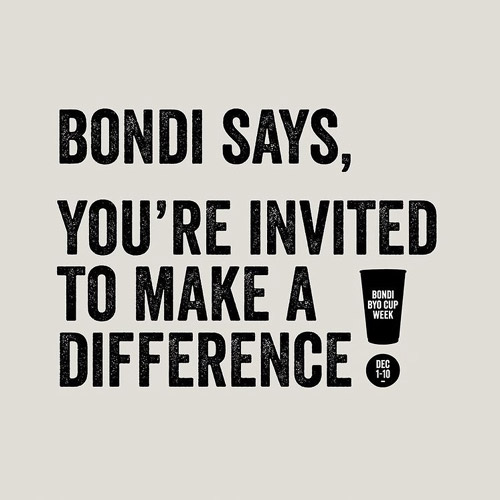Searching for the definition of Vapor Soul music
4 December 2021

I’ve spent the last few days, since my Spotify Wrapped compilation for 2021 landed earlier this week, finding out what I can about a music genre called vapor soul; or, as I prefer to spell it: vapour soul. According to Spotify Wrapped, vapour soul was the genre I listened to the most over the last twelve months.
That’s fascinating because I had no idea the majority of the music I consumed during 2021 was vapour soul. In point of fact, I didn’t even know vapour soul existed until this week. Yet when I went looking, I found references to vapour soul that were almost four years old. Brilliant. Vapour soul has been a thing for years, but I only find out about it in the closing days of 2021.
But while vapour soul has a history, I still didn’t have a definition. To that end I went straight to the source, Spotify, or more precisely, the Spotify Community Blog. A search yielded a few results for vapour soul, but they were mainly the playlists of members, whose selections included vapour soul tracks. So I cast the net a little further out, where I found an in-depth article at Phases which summarises vapour soul thusly:
From what I can tell, vapor + soul = mellow-sounding/ear-pleasing music featuring fluid sounds, life-giving production and lyrics based in an uncertain or somewhat sad state of mind.
That might describe some of the music I listen to, but glancing at my top five listened-to tracks of 2021, which include The Sound of Violence by Dennis De Laat, I Follow Rivers by Lykke Li, and Everybody Rise by Amy Shark, I couldn’t say they are tracks “based in an uncertain or somewhat sad state of mind.” I decided to keep searching. That took me to an article by Cara Houlton at The Focus, where I discovered there is an apparently related genre known as vapour twitch:
Whilst some Spotify users might only just be seeing the genre vapor twitch for the first time on their Wrapped in 2021, the genre has been appearing since 2019. A micro-genre of electronic music, ‘vapor’ can be best described as having a foggy, ethereal sound, whilst ‘twitch’ adds post-futuristic EDM beats.
There’s another useful definition of vapour. If twitch refers more to post-futuristic EDM beats, then the soul in vapour soul derives – maybe – from soul music, defined here by dictionary.com:
A fervent type of popular music developed in the late 1950s by Black Americans as a secularized form of gospel music, with rhythm-and-blues influences, and distinctive for its earthy expressiveness, variously plaintive or raucous vocals, and often passionate romanticism or sensuality.
I guess I could see a “passionate romanticism or sensuality” in some of the music I’ve listened to in the last year. So far though, I’ve not found a simple, five to ten word, definition of vapour soul that gives me the succinct clarify I crave. Next I tried that veritable favourite stand-by of many, Urban Dictionary:
BS edgy genre made up by an international media services provider of Swedish origin. Artists: unknown.
“Artists unknown” sounds about right, as does BS. I’ll defer to Wikipedia again, where Spotify Wrapped is described as “a viral marketing campaign.” If the goal is to get people talking, then the marketing campaign succeeded. In the end then I still may not fully understand what vapour soul is, but it is kind of cool to be listening to a genre of music that seems to flummox even its adherents.
RELATED CONTENT
What is the best book of the past 125 years?
3 December 2021
Voting is opening until a few seconds before midnight, Sunday, 5 December 2021 (ADST) for The New York Times best book of the past 125 years. Yes, you read that correctly, the past one-hundred-and-twenty-five years. How you chose the best book of the last twelve months is a challenge, if you ask me, let alone the last century and a quarter. Somehow though, thousands of nominations were whittled down to a shortlist of just twenty-five titles. Go now and cast your vote.
RELATED CONTENT
Winners of the Australian Podcast Awards 2021
3 December 2021
Last night the winners of the Australian Podcast Awards were announced, at an event hosted by Sydney’s venerable Ritz Cinema. The Podcast of the Year award went to Private Affairs – which also won Best Fiction Podcast – a show billed as a “romantic-dramedy fiction podcast about a couple learning how to navigate the complexities of an interracial and intercultural relationship.” Former Australian Prime Minister Julia Gillard won The Spotlight Award with her production A Podcast of One’s Own with Julia Gillard, while Tough Love, by Sydney based radio host and musician Linda Marigliano, took out the Best Lockdown Podcast.
RELATED CONTENT
Bondi says: break up with the cup
3 December 2021

BYO Cup Week is an initiative by bru coffee, a cafe at Sydney’s Bondi Beach, and Australian journalist and blogger Sarah Wilson, to bring about a reduction in the use of disposable takeaway coffee cups. Between now – 1 December actually – and Friday 10 December 2021, coffee drinkers across Sydney are being urged to switch to re-usable cups, sometimes known as keep-cups, for their caffeine fix. Contrary to what many of us might think, disposable coffee cups are an environmental nuisance:
Although disposable cups look like they are made of paper and recyclable, the majority contain plastics that don’t break down and are damaging to the environment. According to the NSW Environment Protection Authority, 1 billion disposable coffee cups end up in landfill sites across Australia each year. It is estimated that Bondi contributes 75,000 cups a week to that annual total.
RELATED CONTENT
coffee, environment, sustainability
Oh William!, by Elizabeth Strout
3 December 2021

Even though their marriage ended many years ago, Lucy and William have largely remained close. Both remarried, although Lucy’s second husband died, while William, together with two children by Lucy, became father to another daughter, with his third wife. But after learning something he didn’t previously know about his mother, a disturbed William asks for Lucy’s help in finding out more about his mother’s past.
But as they travel away together, it seems it is Lucy who is on the journey of discovery. She finds herself pondering her marriage to William, and what drew them together in the first place, from their time at university. But far from simply being a story about family secrets, Oh William! is a meditation on life, the relationships that come and go, and the connections with the people around us.
Perhaps though it is life that is the mystery, rather than the sometimes unfathomable actions of loved ones. We’re left wondering how well we know those we think we’re close to, when perhaps the more pertinent question is how well we know ourselves. Oh William! (published by Viking/Penguin Books Australia, October 2021), is the ninth book by American author Elizabeth Strout, and the third in a series of novels that centres on Lucy.
RELATED CONTENT
Elizabeth Strout, fiction, TBR list, writing
Setting Sun Short Film Festival 2022
2 December 2021
Entries are open to filmmakers to submit work for the Setting Sun Short Film Festival taking place online, and hopefully onsite at the Sun Theatre, in Yarraville, Victoria, from 5 to 12 May 2022. To be eligible, films must have been made between 1 December 2019 and 31 March 2022. Submissions close on 31 January 2022.
RELATED CONTENT
Australian film, film, trailer
The 2021 passive-aggressive gift guide
2 December 2021
Tis the season for giving… out. A passive-aggressive gift guide filled with book suggestions for the difficult people in your life, put together by Readings. Here are a few of their ideas:
- For that person who has fallen down the internet rabbit hole.
- For that family member full of helpful (not) advice.
- For someone who probably needs to curb their pandemic shopping habits.
- For that person whose feminism is ten years out of date…
- For the person who genuinely believes Australia isn’t a racist country.
RELATED CONTENT
Paula McLean’s Stella Forever Fund donation
2 December 2021
Future recipients of the Stella Prize, a literary award recognising the work of Australian women writers, can except to see their efforts acknowledged for years to come, following a one-million dollar donation to the Stella Forever Fund by former Stella Deputy Chair Paula McLean.
McLean’s donation is a part of the Fund’s objective to secure a total of $3 million in prize money by April 2022, when the next Stella award winner will be announced. The announcement is being presented as a ‘matched funding’ initiative, meaning that every donation made up to $1 million will be matched by McLean, as a way to kick-start an even greater circle of giving around this important literary prize.
RELATED CONTENT
Australian literature, literary awards, Stella Prize
Books men should read
2 December 2021
Seven books to buy for men in your life, by Sheree at Keeping Up With The Penguins. Unlike similarly titled lists you may see published by book-sellers at certain times of the year, this is one you want to look at.
So, why on earth am I making a list of books to buy for men? Well, I’ve noticed that people do actually pay attention to these recommendations, and the “books to buy for men” page is almost always almost exclusively populated with books written by men. What about the books by women, the ones that might “normally” find a large audience of women, but would actually really benefit cis-men?
I could probably say more about the matter of why the “for him” recommendations issued by book-sellers, are filled with titles by men, about men, when there’s a stack of awesome novels written by women they could also be reading. If the question is asked enough though, perhaps more people will think about it.
RELATED CONTENT
Darren Hanlon’s literature inspired music playlist
2 December 2021
Last week Australian musician Darren Hanlon put together a music playlist inspired by works of literature for radio station Double J. Included is a cover of the old Dire Straits hit Romeo and Juliet, based of course on the play of the same name by William Shakespeare, by Lisa Mitchell.
RELATED CONTENT
